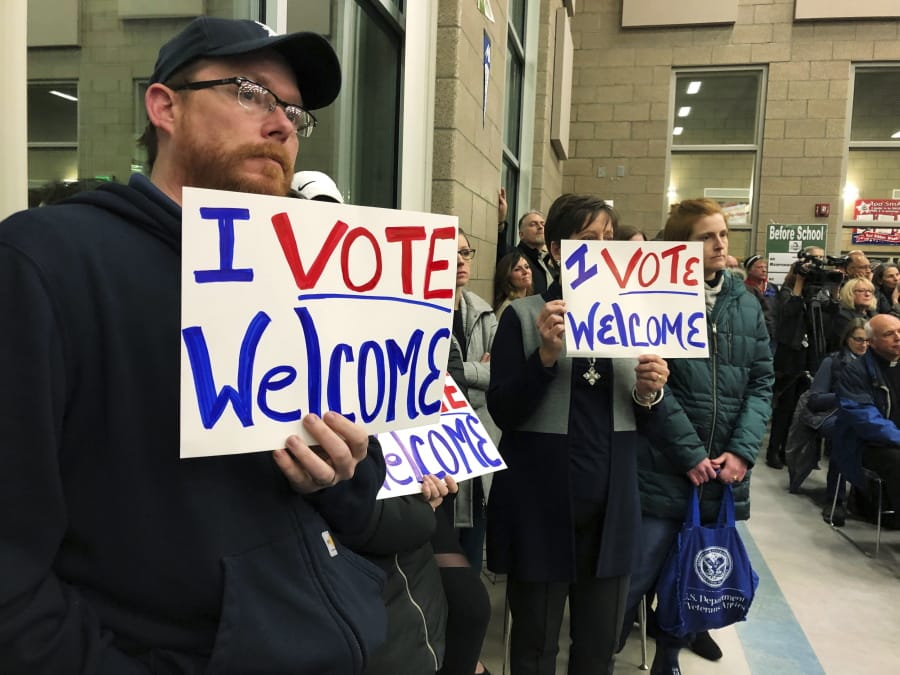BISMARCK, N.D. — A North Dakota county on Monday voted to accept no more than 25 refugees next year, after initially signaling it would be the first to ban them since President Donald Trump ordered that states and counties should have the power to do so.
The 3-2 vote by the Burleigh County Commission, which included a provision for further study of the issue, followed a four-hour meeting and came a week after a vote was postponed when the audience overflowed the county’s usual meeting space. If commissioners had voted no, refugee resettlement groups say they believe Burleigh — home to about 95,000 people and the capital city of Bismarck — would have been be the first local government to do since Trump’s executive order in September.
Burleigh County doesn’t receive many refugees — just 24 in fiscal 2019, after 22 the year before — but interest in the vote has been intense. Monday’s meeting was shifted to Horizon Middle School cafeteria, where a standing-room-only crowd of more than 450 people showed up testifying for and against refugee resettlement. Inside the building, a significant presence of police and county deputies was apparent.
Several refugees, in often emotional testimony, urged the commission to continue accepting new arrivals.
“Look at the room and tell every immigrant here that they are not welcomed,” said Geraldine Ambe, who moved to Bismarck from Cameroon and is now a U.S. citizen. She said her aunt and her husband and their four children “ran from Nigeria to seek protection.”
“Please look at her face and tell her ‘we can’t help you,'” Ambe said.
“People think we are lazy and just sit at home and get the government money,” said 20-year-old Tresor Mugwaneza who came from the Congo four years ago. “We are not in this country just to take your government money. We are here to work and be successful in life just like all of you.”
Mugwaneza said he was attending college and has “dreams of having my own business one day.”
Chairman Brian Bitner said at least a dozen church leaders wrote in support of the resettlement program, part of an outpouring of public comment that Bitner last week said was running decisively against any new refugees. Bitner voted against accepting new refugees.
“Refugee resettlement is not only the right thing to do, but it is good for Burleigh County and North Dakota,” Bishop David Kagan of the Roman Catholic Diocese of Bismarck wrote in a letter to commissioners. The diocese, which covers the western portion of the state, serves some 62,000 Catholics.
“In my own mind, we would basically be writing a blank check, and somebody in Washington, D.C., or elsewhere would make a decision on how many people would come to Burleigh County and we’d have to respond,” Bitner said. “And that’s simply not a good way to govern.”
Bitner and others, including Republican state Rep. Rick Becker and Bismarck Mayor Steve Bakken, cited lack of control and the potential new costs of supporting refugees. The county doesn’t track such costs.
Becker told the commission the issue is not about race, religion or fear.
“This is not anti-refugee,” Becker said. “This is about policy.”
Bismarck resident Clay Jenkinson, a North Dakota historian, said in 1920, 70 percent of the people in the state “had been born abroad.”
He called banning refugees from the county “wrongheaded.”
“This vote is being watched by the whole world,” he said. “It will tell us who we are.”



